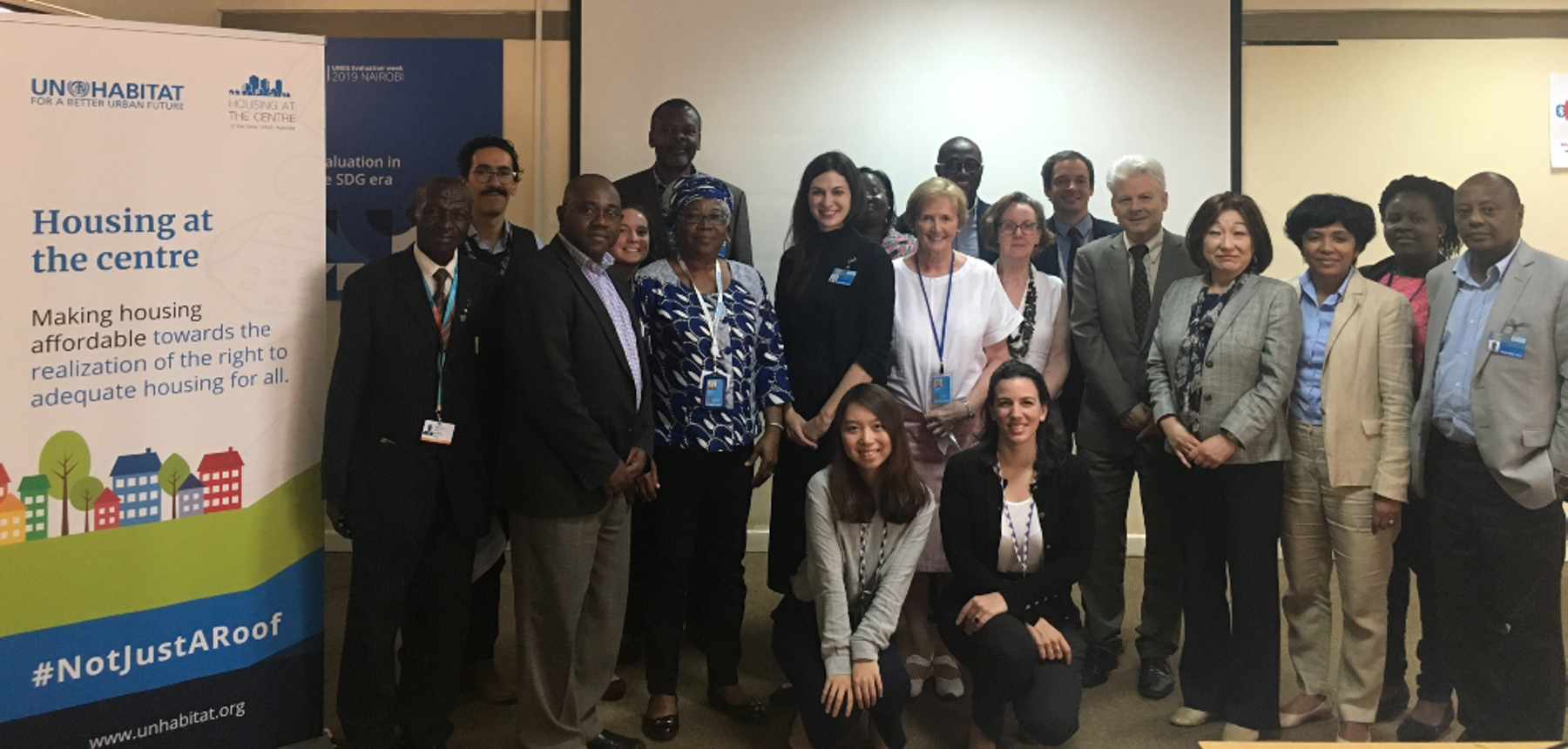 Ruff Institute of Global Homelessness Executive Director Lydia Stazen, standing at center in black, attending the 2019 UN-Habitat convening on homelessness. (Courtesy of Lydia Stazen)
Ruff Institute of Global Homelessness Executive Director Lydia Stazen, standing at center in black, attending the 2019 UN-Habitat convening on homelessness. (Courtesy of Lydia Stazen)
The Ruff Institute of Global Homelessness at DePaul University has officially partnered with the United Nations Human Settlements Program to raise awareness and implement solutions to global homelessness.
UN-Habitat is the coordinating agency responsible for promoting collaboration in the implementation of Sustainable Development Goal 11: "Making cities and human settlements inclusive, safe, resilient and sustainable."
UN-Habitat is currently active in more than 70 countries around the globe and in close contact with national governments, cities and urban settlements. This, coupled with the international relationships that IGH can mobilize, gives the partnership access to a network of national and local governments willing to explore innovative solutions to homelessness.
Together, as outlined in our Memorandum of Understanding, IGH and UN-Habitat will:
-
Plan for better homelessness data collection efforts. We currently cannot answer the question, "How many people are homeless globally?" The best available data is from a 2001 United Nations estimate, which suggests that between 100 million and 150 million people around the world are homeless. Updating this figure will require a major data collection effort but is necessary to understand the scope and nature of global homelessness. Our work with UN-Habitat will build on IGH's
Better Data Project, which visualizes the vast differences in the quality, transparency, accuracy and reliability of homelessness data.
-
Provide technical assistance and capacity-building to local and national governments on a variety of homelessness strategies. Many communities and countries around the world are eager to better serve people who are homeless. IGH was a featured panelist in a three-day United Nations convening of Mediterranean and North African cities that wanted to understand how homelessness intersects with regional displacement. Many of the cities expressed interest in working more with IGH.
-
Raise awareness of homelessness within the U.N. ecosystem through events such as World Homelessness Day. One recent event co-convened by IGH and UN-Habitat was Ending Youth Global Homelessness, which featured perspectives from youth activists who had experienced homelessness in different countries.
A recording of the event is on YouTube.
We look forward to working in partnership with UN-Habitat to expand our efforts around the world to prevent, reduce and end homelessness.